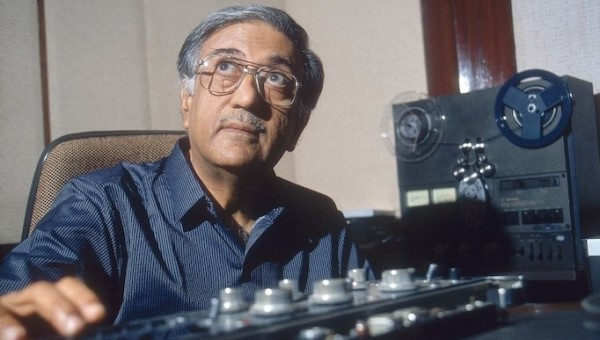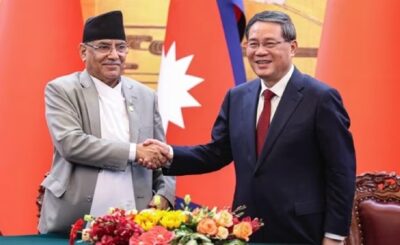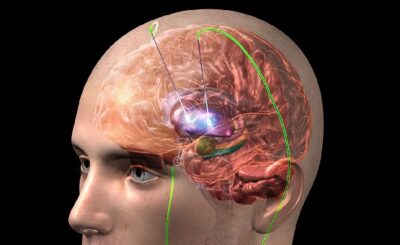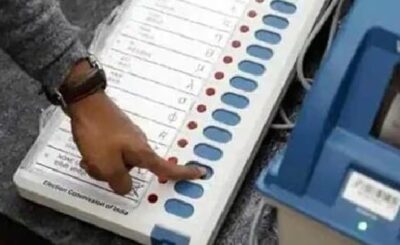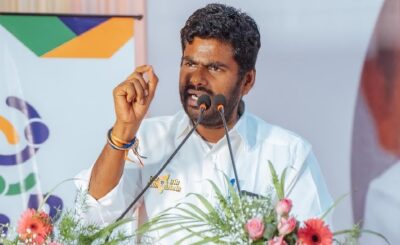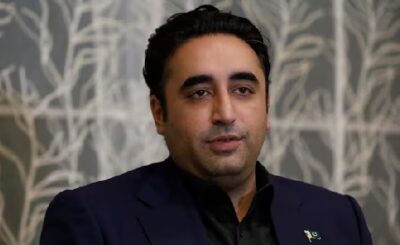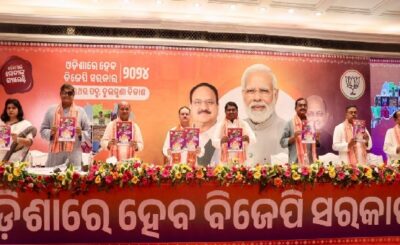In India, radio is often considered as the less affluent counterpart of television, a seeming anomaly. All India Radio has attained its esteemed mass media status over the years, broadcasting in 24 languages and 146 dialects from over 200 centers, reaching nearly a billion people. Renowned figures in India, such as the legendary Melville de Mellow, have graced the airwaves, but it was Ameen Sayani who truly touched the hearts and souls of music enthusiasts in India. The recent demise of Ameen Sayani, the beloved host of the age-old ‘Binaca Geetmala,’ has left listeners in mourning.
Recalling with nostalgia, the writer fondly remembers eagerly anticipating every Wednesday at 8:00 PM to hear Ameen Sayani’s signature greetings, “Behno aur Bhaiyo” (sisters and brothers), a heart-touching and widely imitated phrase that made him an icon among the Indian masses. His engaging style and appealing voice endeared him to listeners across India and even reached audiences in Pakistan.
A natural progression led to the immense popularity of Ameen Sayani’s show, Binaca Geetmala, a 30-minute program on Radio Ceylon that aired every Wednesday at 8 PM, becoming a sensation in the 1950s. Despite undergoing several changes in nomenclature – from Binaca Geetmala to Hit Parade and Cibaca Geetmala – the essence of the show remained intact. Running from 1952 to 1994, it transitioned across stations and later found a home on All India Radio’s Vividh Bharti. The powerful transmitter of Radio Ceylon, set up by Louis Mountbatten, Commander, Southeast Asia, Allied Forces (last Viceroy of India) played a crucial role in the show’s popularity.
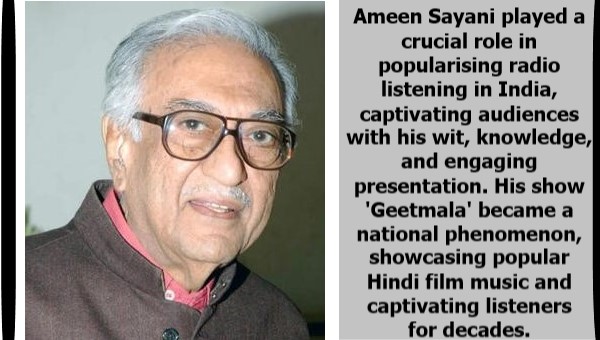
Binaca Geetmala owes much to B.V. Keskar, the Minister of Information and Broadcasting, who introduced significant restructuring to musical programming on All India Radio in 1952. Keskar’s order to cease broadcasting Hindi film songs on AIR stations opened the floodgates for Radio Ceylon to provide a platform for Bollywood songs. Consequently, Binaca Geetmala became a medium for promoting simple Hindustani language, connecting with the masses across the subcontinent.
Over the years, the world has come to associate India, its cinema, and its culture with Hindi film songs, and credit for this goes to Ameen Sayani’s four-decade-long iconic radio show Binaca Geetmala. Ameen Sayani, with his deep baritone and musical ear, shattered stereotypes of radio presenters, connecting instantly with the masses and ushering in a new era for a young and eager India. His passing at the age of 91, due to cardiac failure, has left many with moist eyes.
The iconic baritone voice of Ameen Sayani, emanating from radio transistors with the familiar greeting, “Namaskar behno aur bhaiyon, main aapka dost Ameen Sayani bol raha hoon,” coupled with Hindi film songs, captivated the imagination of a recently independent India in the mid-’50s. His show Geetmala, spanning over four decades, remains one of the most intriguing chapters in India’s sonic history, a voice to be remembered with awe and admiration by posterity.
Sri Lanka played a pivotal role in the inception of Binaca Geetmala. When All India Radio refrained from airing Indian film songs, Sunil Dutt, working as a radio jockey in Radio Ceylon, popularised Hindi film songs among Sri Lankans. Ameen Sayani utilised the platform provided by Sunil Dutt to broadcast popular Bollywood songs.
He received numerous awards, both at home and abroad, including the Padma Shri, Hindi Ratna Purskar, Living Legend, Kaan Hall of Fame, Person of the Year, and Gold Medal. Sayani also assisted his mother, Kulsum Sayani, in editing, publishing, and printing a fortnightly journal for neo-literates under Mahatma Gandhi’s guidance. He also portrayed the role of an announcer in many Bollywood films. Ameen Sayani’s warm baritone, coupled with his infectious enthusiasm, made him a household name across the subcontinent. His legacy as a radio legend continues to inspire and entertain millions.
See also:
Genesis of top 5 Indian Chief Ministers
Saga of Indian tennis down memory lane


